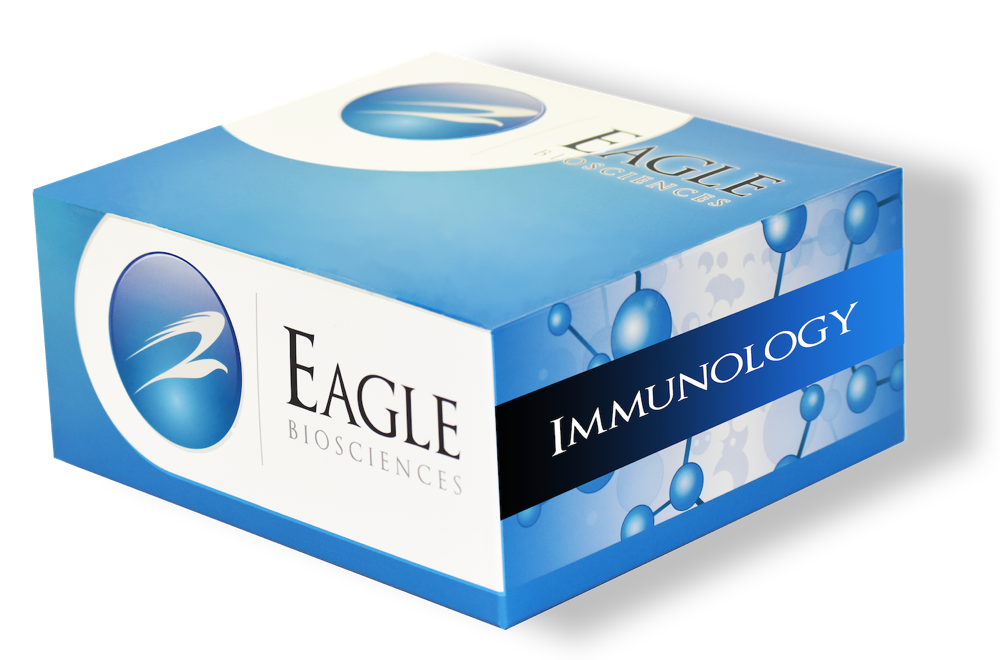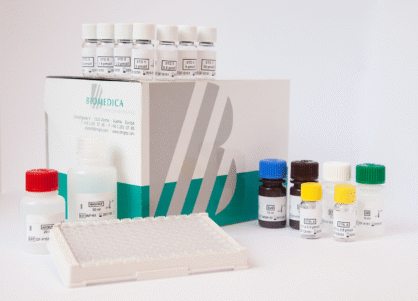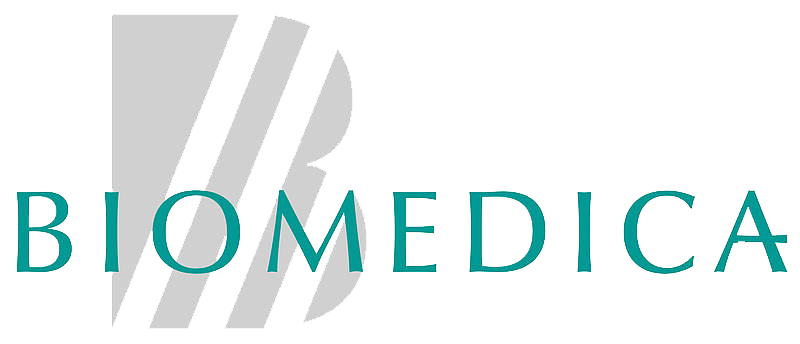Properdin ELISA Kit
Properdin, also known as factor P, is a crucial glycoprotein in the human body, playing a vital
role in the alternative complement activation pathway. This single-chain plasma protein, with
a molecular mass of 52-55 kDa, consists of six thrombospondin repeats flanked by short Nand
C-terminal domains. In circulation, it exists as a mix of dimers, trimers, and tetramers,
predominantly as trimers.
Produced by leukocytes like monocytes, T lymphocytes, neutrophils, and endothelial cells,
properdin’s synthesis in endothelial cells is notably induced by shear stress. It’s essential in
stabilizing the C3bBb complex on immune complexes or foreign surfaces, amplifying C3bBb
formation and leadig to the creation of the alternative pathway C5 convertase, C3bBb3b. This
action initiates the terminal complement activation pathway.
Properdin’s impact is significant: it extends the half-life of surface-bound C3bBb from mere
minutes to around 18 minutes by inhibiting C3b cleavage, increasing affinity for factor B, and
preventing the dissociation of C3bBb. Interestingly, properdin consumption occurs through
binding to C3bBb, with a preference for tetramers, followed by trimers and dimers.
Deficiencies or dysfunctions in properdin can severely impair the alternative pathway
activation, with different types of familial deficiencies identified, all linked to the properdin gene
on the X chromosome. These deficiencies, inherited as X-linked recessive traits, range from
absent or very low properdin activity to normal levels of dysfunctional protein. Properdin levels,
typically around 5 to 25 μg/mL in healthy individuals, vary significantly in conditions like
diabetes, emphasizing its diagnostic and therapeutic potential in immunological and
inflammatory disorders. (Ref. 1).
This Properdin ELISA Kit is manufactured in Netherlands by Hycult Biotech.



